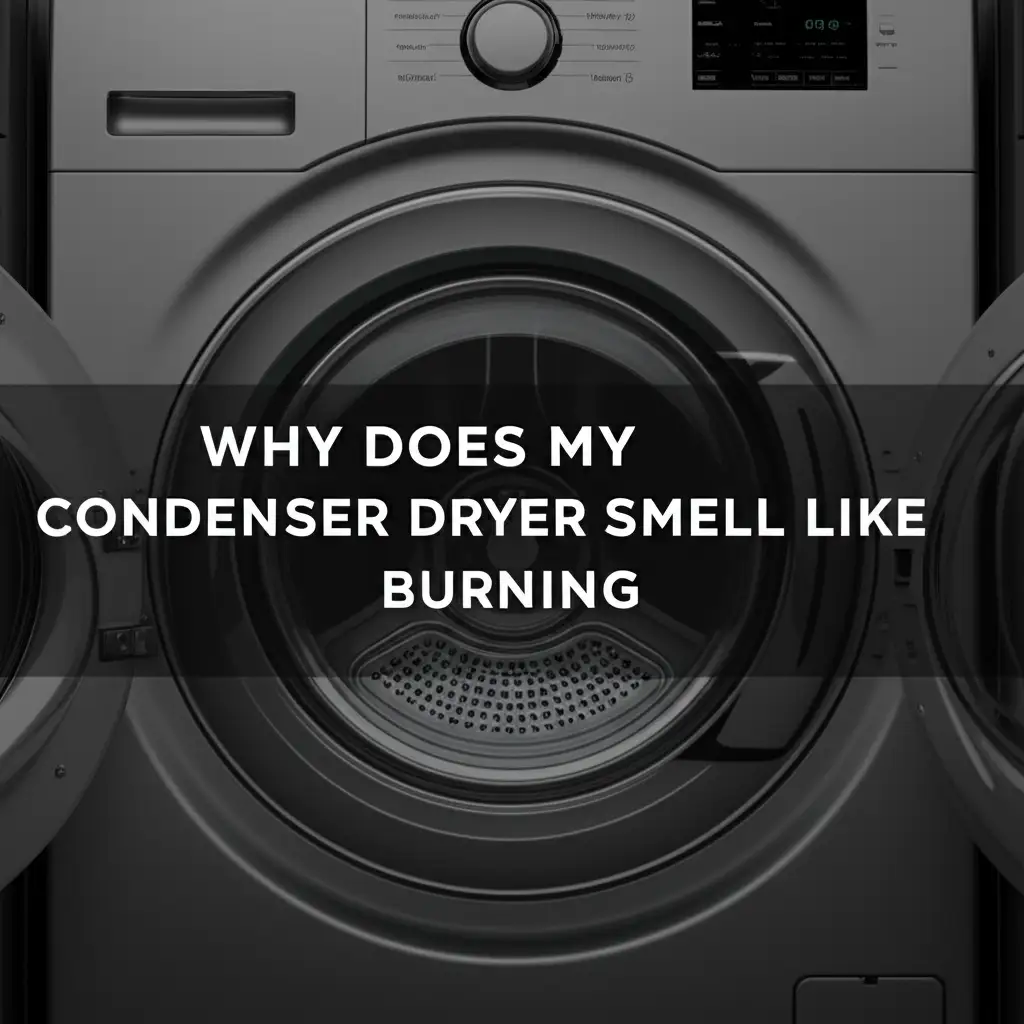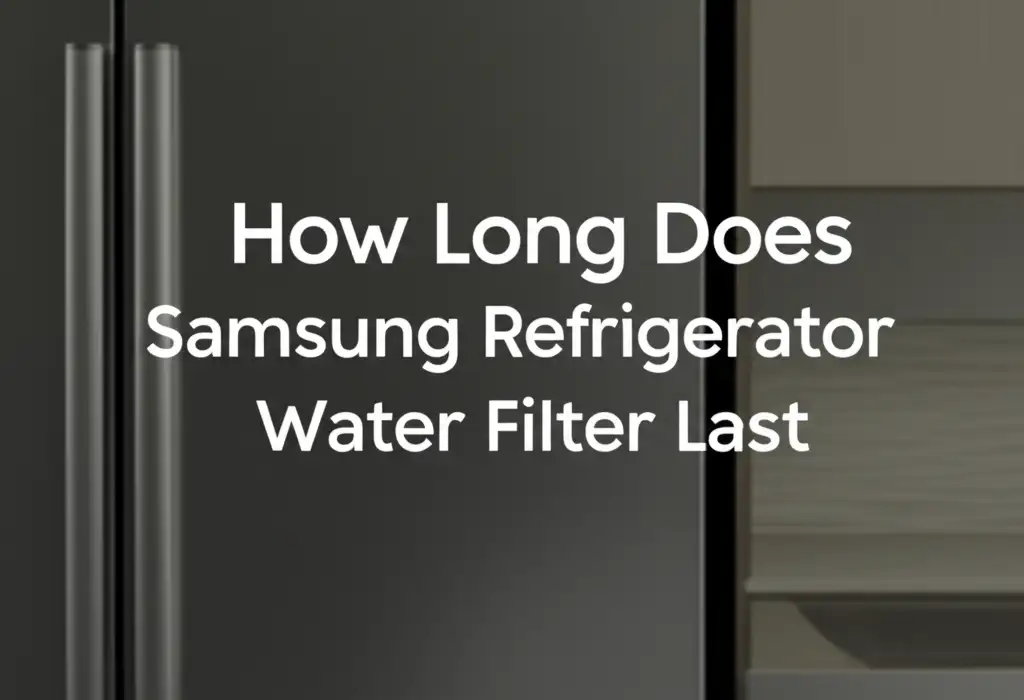· Todd Martin · Appliance Maintenance · 23 min read
Why Does My Electric Dryer Smell Like Lighter Fluid

Electric Dryer Smells Like Lighter Fluid? Here’s Why!
There is nothing quite like pulling warm, clean laundry from the dryer. It is one of life’s simple pleasures. However, that pleasant feeling can quickly turn to alarm if you open your dryer door and encounter a strange, sharp chemical odor. A smell resembling lighter fluid coming from your electric dryer is concerning. It can indicate a range of issues, from harmless residues to potentially serious electrical problems. I know this smell can make you worry about your home’s safety.
This guide will explain why your electric dryer might smell like lighter fluid. We will explore common culprits, including chemical residues, electrical malfunctions, and ventilation issues. You will learn practical troubleshooting steps to identify the source of the smell. We also cover essential safety measures. My goal is to help you understand this concerning odor and take appropriate action.
Takeaway
- Identify the Source: The smell can come from chemical residues, electrical problems, or blocked vents.
- Prioritize Safety: Unplug the dryer immediately if you suspect an electrical issue or strong, persistent odor.
- Clean Thoroughly: Regularly clean the lint trap and dryer vent. This prevents many common smell issues.
- Check for Spills: Inspect clothes and the dryer drum for any spilled chemicals.
- Call a Professional: Contact a certified technician for electrical smells or if the problem persists.
Clear Answer: Why Does My Electric Dryer Smell Like Lighter Fluid?
Your electric dryer smells like lighter fluid due to various reasons. These include chemical residues from cleaning products or items dried in the dryer, overheating electrical components, or accumulated lint and debris in the vent system. New dryers can also emit a manufacturing odor initially.
Understanding Chemical Residues and Cleaning Products
One of the most common reasons your electric dryer smells like lighter fluid is the presence of chemical residues. These residues often come from items placed inside the dryer. Think about clothes that might have come into contact with certain substances. Common household products can also contribute to this problem.
Many laundry products contain petroleum-based ingredients. Fabric softeners, dryer sheets, and even some detergents can leave a residue on clothes and inside the dryer drum. When these residues heat up, they can produce an odor similar to lighter fluid. This smell is usually more noticeable when the dryer is running hot or when drying a large load. It is important to remember that these residues build up over time. Regular cleaning helps reduce this buildup.
- Fabric Softeners and Dryer Sheets: These products leave a thin film on fabrics. Over time, this film transfers to the dryer drum and heating elements. The petroleum distillates in some products can create a chemical smell when heated. Consider using less of these products or trying alternatives.
- Cleaning Solvents or Flammable Liquids on Clothes: Sometimes, clothes can accidentally pick up spills. Gasoline, paint thinner, or even certain household cleaners may get on clothing. Drying these items, even after washing, can be very dangerous. The heat from the dryer can reactivate fumes from these chemicals. This creates a strong, distinct chemical odor. It also poses a serious fire hazard.
- New Appliance Residues: A brand new electric dryer might also emit a “new appliance” smell. This often comes from manufacturing oils, coatings, or insulating materials burning off during the first few uses. This smell typically fades after a few cycles. However, if it smells strongly of lighter fluid or something similar, it is worth investigating. In some cases, a new appliance might have a component that is overheating slightly.
To address chemical residue issues, I recommend a thorough cleaning. Wipe down the inside of the dryer drum with a damp cloth and mild detergent. You can also run a cycle with old towels and no heat to help burn off any lingering smells. For more detailed guidance, learning how to clean your dryer can be very beneficial. This helps remove built-up film and reduce chemical odors.
Overheating Components and Electrical Issues
A very serious cause for a lighter fluid smell in your electric dryer involves overheating electrical components. This type of smell is often described as a burning plastic or burning chemical odor. It can rapidly intensify and indicates a potential fire hazard. Electric dryers use heating elements, motors, and wiring to function. Any of these parts can overheat or fail.
When electrical components begin to fail, they emit specific odors. The insulation around wires can melt, producing a strong chemical smell. Motors can overheat, causing their internal lubricants or windings to burn. This also results in a distinct, pungent odor. A burning smell that resembles lighter fluid or burning plastic is a major warning sign. You should not ignore this smell.
- Failing Motor: The dryer motor can overheat due to wear and tear or excessive strain. As the motor overheats, its internal components or lubricants can break down. This creates a burning smell. This smell might be intermittent at first, but it usually becomes more consistent.
- Faulty Heating Element: The heating element warms the air inside the dryer. If this element malfunctions, it can overheat beyond its normal operating temperature. This excessive heat can cause insulation around the element to burn. The smell might be metallic and chemical, like lighter fluid.
- Damaged Wiring: Loose or frayed wiring within the dryer can arc or short-circuit. This creates intense heat, melting wire insulation. The melting plastic and burning wire produce a strong chemical smell. This is a significant fire risk and needs immediate attention.
- Malfunctioning Thermostat or Thermal Fuse: Dryers have safety devices like thermostats and thermal fuses. These prevent overheating. If these components fail, the dryer might not regulate temperature properly. This can lead to other parts overheating. This often results in a burning electrical smell.
If you detect a smell resembling burning plastic or a strong chemical odor, especially one that quickly gets stronger, turn off the dryer immediately. Unplug the appliance from the wall outlet. Do not use the dryer again until a qualified appliance technician inspects it. This type of smell is a serious safety concern. Ignoring it could lead to a dryer fire. You can learn more about general appliance odors by reading about why your Power XL Air Fryer might smell like plastic. While different appliances, the principle of new or overheating components creating smells is similar.
Clogged Lint Trap and Dryer Vent
A dryer needs proper airflow to operate safely and efficiently. A common issue that affects airflow is a clogged lint trap or dryer vent. When lint and debris accumulate, they restrict the flow of air. This causes the dryer to work harder and can lead to overheating. This overheating can result in strange smells, sometimes resembling lighter fluid or a burning odor.
Lint is highly flammable. When hot air cannot escape properly, the temperature inside the dryer rises significantly. This can cause the lint to scorch or smolder. The smell from scorching lint can be acrid and chemical, sometimes mistaken for lighter fluid. It is a sign of a potential fire hazard. This is why regular cleaning is so vital for dryer safety and performance.
- Restricted Airflow: A blocked lint trap or vent means hot, moist air gets trapped inside the dryer drum and ductwork. This lack of circulation causes the dryer’s internal temperature to climb. It puts stress on components and increases the risk of overheating.
- Lint Buildup in Ductwork: Lint can accumulate not just in the trap but also along the entire dryer vent hose and exhaust duct. This buildup acts as insulation. It traps heat and poses a fire risk. Scorched lint can create a very distinctive and unpleasant smell.
- Inefficient Drying: When airflow is restricted, your clothes take much longer to dry. This extended drying time further heats the dryer. It also wastes energy. If your dryer takes an unusually long time to dry clothes, a clogged vent is a likely culprit. You can read more about this problem at why your electric dryer takes so long to dry.
- Damage to Components: Continuous overheating due to poor ventilation can damage electrical components. This includes the heating element or motor. This creates further potential for electrical smells and hazards.
I cannot emphasize enough the importance of regularly cleaning your lint trap. Do this after every single load. You should also clean your dryer vent ductwork at least once a year, or more often if you use your dryer frequently. Use a dryer vent cleaning brush kit to remove accumulated lint. Ensure the exterior vent cap is not blocked by debris or nests. Maintaining clear vents is crucial for preventing dangerous dryer fires. It also helps your dryer run efficiently. Taking the time to properly clean your dryer machine will extend its lifespan and keep your home safe.
External Contamination or Spills
Sometimes, the lighter fluid smell does not originate from inside the dryer itself. It can come from something external. Accidental spills or contamination of items going into the dryer can be the cause. This is especially true if you or someone in your household works with chemicals or uses certain types of products around the laundry area.
Consider the possibility of clothes accidentally exposed to chemicals. If you work in a garage, for example, your work clothes might pick up a slight gasoline or oil odor. Even if you wash them, some lingering residues or fumes can remain. When these items are heated in the dryer, the residual chemicals can vaporize. This then releases a strong, chemical smell similar to lighter fluid. This scenario poses a significant safety risk. The fumes can be flammable.
- Work Clothes Contaminated with Flammables: If you or a family member works with gasoline, paint thinners, solvents, or other volatile chemicals, never put those clothes directly into the dryer. Even after washing, some flammable residues can remain embedded in the fabric. The heat from the dryer can cause these residues to ignite. Always air-dry such items outdoors first.
- Accidental Spills Near the Dryer: A spill of a chemical cleaning product, paint thinner, or even a barbecue lighter fluid bottle might have occurred near or on the dryer. The dryer’s heat can then cause these external fumes to vaporize and become noticeable. Inspect the floor around the dryer and the dryer’s exterior for any signs of spills.
- Chemical Fumes in the Laundry Room: Sometimes, the smell in the laundry room itself might be entering the dryer. If you are painting nearby, using strong cleaning chemicals, or if there’s a spill of any type of solvent in the area, the dryer’s airflow can pull these fumes in. This then makes it seem like the dryer is producing the smell.
- Pets or Pests: In rare cases, some animal repellents or pest control products contain strong chemical smells. If these products were used near the dryer, their scent could be drawn into the appliance. This is less common but worth considering in a comprehensive check.
If you suspect external contamination, remove all laundry from the dryer immediately. Ventilate the area well. Check the dryer drum and surrounding areas for any spills or residues. If you find any, clean them carefully following safety guidelines for the specific chemical. Remember that even a small amount of flammable residue on clothing or in the dryer can be dangerous when heated.
New Dryer Smell or Manufacturing Residue
When you bring home a brand new electric dryer, it is common for it to emit an unusual smell during its first few uses. This “new appliance” smell is typically harmless. It usually fades after a few drying cycles. This odor often comes from manufacturing residues. These include protective coatings, lubricants, and insulation materials.
These materials are designed to withstand high temperatures. However, during the initial heat cycles, they can off-gas. This process causes a temporary odor. The smell might be somewhat chemical or plastic-like. It is part of the normal break-in period for many new appliances. You might also notice a similar smell from other new electric appliances like ovens or air fryers. For example, why a new electric oven might burn the bottom of everything can relate to initial burning off of residues.
- Protective Coatings: Manufacturers apply various coatings to metal parts to prevent rust or corrosion during shipping and storage. These coatings can burn off slightly when the dryer first heats up. This release of vapors creates a distinct smell.
- Lubricants and Oils: Moving parts in the dryer’s motor and rollers require lubricants. Excess lubricant can burn off when the dryer operates for the first time. This contributes to the initial smell.
- Insulation Materials: Internal wiring and components are often wrapped in insulating materials. These materials can also release a smell as they heat up and settle into place.
- “Break-in” Period: Think of it like a new car smell. The components are new and heating up for the first time. This causes residual manufacturing odors to become airborne. This period is usually short-lived.
If your dryer is new and the smell is mild and dissipates after a few cycles, it is likely normal. To help speed up the process, you can run a few empty cycles on a high heat setting. Ensure your laundry room is well-ventilated during these initial cycles. Keep windows open or use an exhaust fan. If the smell is strong, persistent, or combined with smoke or signs of malfunction, then it is not normal. In such cases, contact the manufacturer or the retailer for assistance. You can also read about why a GE dishwasher might smell to understand that many appliances can have specific odors.
Troubleshooting Steps and Safety Precautions
When your electric dryer smells like lighter fluid, taking immediate and systematic action is crucial. Your first priority is always safety. Do not ignore unusual smells, especially those indicating potential electrical issues or fire hazards. I always recommend caution when dealing with appliance odors.
Before doing any inspection or cleaning, always disconnect the dryer from its power source. Unplug it from the wall outlet. If you cannot reach the plug, turn off the circuit breaker that powers the dryer. This simple step prevents electrical shocks and further damage. Once the power is off, you can begin your troubleshooting process safely.
- Step 1: Unplug the Dryer Immediately. This is the most important first step for any alarming smell. You remove all electrical current from the appliance. This prevents any potential electrical fires or shocks.
- Step 2: Inspect the Lint Trap and Clean Thoroughly. Pull out the lint trap. Remove all lint. Also, check the trap housing for any lint that might have fallen past the screen. A clogged lint trap is a very common cause of dryer issues.
- Step 3: Check the Dryer Vent for Obstructions. Disconnect the dryer from the wall vent. Inspect the flexible duct behind the dryer for kinks or tears. Look inside the ductwork for lint buildup. Check the exterior vent cap for blockages from lint, debris, or bird nests. Use a dryer vent cleaning kit if necessary to clear the entire run. This is key for airflow.
- Step 4: Inspect the Dryer Drum and Interior. Look inside the drum for any obvious spills or residues. Pay close attention to anything that looks unusual or sticky. Wipe down the drum with a damp cloth and a mild, non-flammable cleaner.
- Step 5: Check Laundry for Chemical Contamination. Carefully inspect the clothes you were drying. See if any item has a strong chemical odor or appears to have been exposed to flammable liquids. Remove any such items. Do not put them back in the dryer.
- Step 6: Run an Empty, Unheated Cycle. After cleaning and inspection, plug the dryer back in. Run an empty cycle on the “air fluff” or “no heat” setting for about 15-20 minutes. This helps circulate air and potentially dissipate lingering odors without adding heat.
- Step 7: Monitor for Persistent Smells. After the unheated cycle, run a normal heated cycle with a few old towels. Pay close attention to the smell. If it returns or gets stronger, especially with a burning plastic smell, stop the dryer immediately.
- Step 8: Consider Professional Help. If the smell persists, is strong and pungent, or if you suspect an electrical issue, do not attempt further repairs yourself. This is the time to call a qualified appliance technician. They have the tools and expertise to diagnose internal electrical or mechanical problems safely.
Always prioritize your safety and the safety of your home. A lighter fluid smell in an electric dryer is not normal. Address it promptly and thoroughly.
When to Call a Professional Appliance Technician
While many dryer odors can be resolved with simple cleaning and maintenance, some situations absolutely require professional help. Ignoring these warning signs can lead to serious appliance damage or, worse, a household fire. I always tell people: when in doubt, call an expert.
You should call a certified appliance technician if you suspect an electrical problem. This includes a persistent burning plastic or chemical smell that quickly gets stronger. If you see smoke or sparks from your dryer, or if the dryer trips the circuit breaker, these are clear signs of a serious electrical malfunction. These issues need immediate attention from someone qualified.
- Persistent Burning Smell: If the lighter fluid smell, especially one resembling burning plastic or chemicals, continues after thorough cleaning and ventilation, it indicates an internal issue. This is likely an electrical component failure. A technician can diagnose whether it is the motor, heating element, or wiring.
- Smoke or Sparks: Any visual signs of smoke, sparks, or flames coming from your dryer necessitate immediate professional intervention. Unplug the dryer and call for help. This is a critical fire hazard.
- Tripped Circuit Breaker: If your dryer consistently trips the circuit breaker when you use it, this often points to an electrical short or a component drawing too much current. A technician can find the source of the electrical fault safely.
- Dryer Not Heating or Not Drying Properly: While not directly a smell issue, if your dryer is making strange noises, not heating, or taking an exceptionally long time to dry clothes after you have cleaned the lint trap and vent, it could indicate an internal component failure. These failures can sometimes lead to overheating and chemical smells. You might want to review why your electric dryer takes so long to dry as related symptoms.
- Uncertainty or Lack of Experience: If you are unsure about the source of the smell, uncomfortable performing troubleshooting steps, or lack the necessary tools and knowledge, it is always best to defer to a professional. Appliance repair can be complex and dangerous if not done correctly.
A professional technician has specialized diagnostic tools. They can accurately identify internal component failures. They can replace faulty parts safely and effectively. Investing in professional repair is a small price to pay for peace of mind. It ensures the safety and longevity of your appliance. Don’t take chances with potential fire hazards.
Maintaining Your Electric Dryer for Optimal Performance and Safety
Regular maintenance is key to preventing many common dryer issues, including strange smells. A well-maintained electric dryer runs more efficiently and is safer to operate. Taking a few proactive steps can save you from potential headaches and hazards down the line. I know that appliance maintenance can seem like a chore, but it truly pays off.
My personal recommendation is to make dryer maintenance a routine. Incorporate it into your general household cleaning schedule. This ensures you do not forget crucial steps like lint trap cleaning. Consistent attention to your dryer’s needs helps it perform its best for years.
- Clean the Lint Trap After Every Load: This is the most frequent and important maintenance task. A clean lint trap improves airflow, reduces drying time, and significantly lowers fire risk. This habit also helps prevent a burning smell.
- Inspect and Clean the Dryer Vent Annually: Lint can accumulate in the dryer exhaust duct over time. This restricts airflow and creates a fire hazard. Use a dryer vent brush kit to thoroughly clean the entire length of the vent hose and ductwork. Consider professional vent cleaning every 1-3 years, especially if your vent run is long or has many bends.
- Check the Exterior Vent Hood: Ensure the outside vent hood is clear of debris, lint, or bird nests. The flap should open and close freely when the dryer is running. A blocked exterior vent can quickly lead to overheating.
- Wipe Down the Dryer Drum: Periodically wipe the inside of the dryer drum with a damp cloth. This removes residue from fabric softeners and dryer sheets. It helps prevent chemical odors from building up. You can also run an empty cycle with a few damp towels to help refresh the interior.
- Inspect the Dryer Cord and Outlet: Ensure the dryer’s power cord is not pinched, frayed, or damaged. The outlet should be secure and free of any discoloration or burning smells. If you notice any issues, have an electrician inspect it.
- Avoid Overloading the Dryer: Overloading forces the dryer to work harder. This increases internal temperatures and can strain components. This also prolongs drying cycles, increasing the risk of overheating. Dry smaller, more manageable loads.
- Do Not Dry Items with Flammable Chemicals: Always air-dry clothes or items that have been exposed to gasoline, paint thinner, cooking oils, or other flammable substances. Even after washing, residues can remain and pose a severe fire risk when heated in the dryer.
By following these maintenance tips, you can prevent a lighter fluid smell and many other dryer problems. A clean and well-maintained dryer not only protects your home but also operates more efficiently, saving you energy and money. For more comprehensive cleaning routines, refer to guides like how to clean your dryer machine.
Addressing Lingering Odors After Cleaning
Even after you have cleaned your dryer and identified potential issues, a faint lighter fluid smell might linger. This can be frustrating. Lingering odors often result from residues baked onto internal components or absorbed into plastic parts. Sometimes, ventilation is still part of the problem.
It is important to remember that some materials absorb smells over time. The drum seals, plastic components, and even the internal fan blades can hold onto chemical odors. It might take several cycles for these smells to fully dissipate. Patience and continued proper ventilation are key to truly eliminating them.
- Run Multiple Empty Cycles with Ventilation: After thorough cleaning, run several empty dryer cycles on a high heat setting. Ensure the laundry room is very well-ventilated during these cycles. Open windows and use an exhaust fan. This helps burn off any remaining residues and air out the interior.
- Use Odor-Absorbing Materials: Place a few old towels, a damp cloth, or even some charcoal briquettes (unlit!) inside the dryer drum. Run a “no heat” or “air fluff” cycle. These materials can help absorb residual odors from the drum’s surface.
- Deep Clean with a Mild Detergent: If you have not already, perform a more rigorous cleaning of the drum. Mix a small amount of mild liquid dish soap with water. Dampen a cloth and wipe down the entire drum interior. Then, wipe it dry. Finish by running an empty cycle to ensure no soap residue remains.
- Check the Dryer’s Location and Airflow: Make sure the dryer has adequate space around it for air circulation. The dryer needs to breathe. Ensure there are no items blocking the intake vents. Also, confirm that your laundry room itself is well-ventilated. Sometimes, smells from other sources in the room can be drawn into the dryer.
- Consider Activated Carbon Filters (if applicable): Some high-end dryers have internal filters beyond the lint trap. Consult your dryer’s manual to see if it has any additional filters that need cleaning or replacement. Activated carbon is known for absorbing odors.
- Professional Cleaning (Last Resort for Odor): If the smell persists despite all your efforts, and you have ruled out electrical issues, a professional appliance cleaning service might be an option. They can access internal areas that are harder for homeowners to reach. This helps ensure all residue is removed.
Persistent odors can be annoying, but with systematic effort, you can usually eliminate them. Always ensure safety first, especially if you suspect the lingering smell is a fire hazard.
FAQ Section
Is a lighter fluid smell in an electric dryer dangerous?
Yes, a lighter fluid smell in your electric dryer can be dangerous. It might indicate highly flammable chemical residues on clothes or an overheating electrical component. Overheating components can lead to electrical fires. If the smell is strong, persistent, or accompanied by smoke, unplug the dryer immediately and do not use it again until a professional inspects it.
Can fabric softener or dryer sheets cause this smell?
Yes, fabric softeners and dryer sheets can contribute to a lighter fluid or chemical smell. They often contain petroleum-based ingredients that leave a residue on clothes and inside the dryer drum. When heated, these residues can produce a distinct chemical odor. Regular cleaning of the dryer drum helps minimize this buildup and the associated smell.
How often should I clean my dryer vent to prevent smells?
You should clean your dryer’s lint trap after every single load. The dryer vent ductwork should be cleaned at least once a year. If you use your dryer heavily, or if your vent run is long or has many bends, you may need to clean it more frequently, perhaps every six months. Regular vent cleaning improves efficiency and prevents fire hazards.
What if the lighter fluid smell persists after thorough cleaning?
If the lighter fluid smell persists after you have thoroughly cleaned the lint trap, dryer vent, and drum, it indicates a deeper issue. This could be a failing electrical component, like the motor or heating element, that is overheating. In this scenario, it is crucial to stop using the dryer and call a qualified appliance technician for a professional diagnosis and repair.
Can a new electric dryer smell like lighter fluid initially?
Yes, a brand new electric dryer can sometimes emit a temporary chemical or plastic-like smell during its first few uses. This “new appliance” odor comes from manufacturing residues, oils, and protective coatings burning off. This smell usually dissipates after a few cycles. If the smell is strong, persistent, or combined with smoke, contact the manufacturer.
Is a dryer smell like rotten eggs also a concern?
A dryer smell like rotten eggs is typically different from a lighter fluid smell. A rotten egg smell (sulfur) often indicates a natural gas leak, even for an electric dryer if there’s gas piping nearby. This is extremely dangerous. If you smell rotten eggs, leave the area immediately, and call your gas company or fire department from a safe distance.
Conclusion
Discovering that your electric dryer smells like lighter fluid is a concerning experience. This article has covered the various potential causes, from simple chemical residues to serious electrical malfunctions and blocked ventilation. My aim was to equip you with the knowledge needed to understand and address this issue safely. Remember, your safety is paramount when dealing with appliance problems.
Always prioritize unplugging the dryer immediately if you detect a strong, persistent chemical smell, especially if it is accompanied by smoke or electrical issues. Regular maintenance, such as cleaning the lint trap after every load and the dryer vent annually, is crucial. These simple steps can prevent many of the common causes of unusual dryer odors. If, after your troubleshooting, the smell persists or you suspect an internal electrical problem, do not hesitate to call a certified appliance technician. They possess the expertise to diagnose and safely repair complex dryer issues. Taking prompt and appropriate action will help ensure your electric dryer operates safely and efficiently for years to come.
- electric dryer
- dryer smell
- appliance safety
- home cleaning
- dryer troubleshooting





